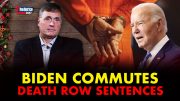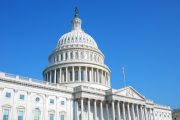
Bob Conley actively supported Pat Buchanan’s presidential bid on the Reform Party ticket in 2000. More recently, he supported Republican Congressman Ron Paul’s presidential bid. He is now running for the U.S. Senate in South Carolina- as a Democrat.
Though he is still largely ignored by the establishment media, Bob Conley has already won the Democratic primary and his name will appear on the ballot in November as the Democratic nominee. His primary victory should be added to those of John McCain’s and Barack Obama’s on the list of improbable but notable outcomes thus far in 2008. On a shoestring budget, and with only a few months under his belt in his new party, Bob Conley won his primary race against Michael Cone, a Charleston lawyer, by 1,049 votes out of 147,287 cast.
The commercial pilot, professional engineer, and flight instructor is now up against Lindsey Graham, the Republican incumbent, who in the current Congress (to date) has scored a mediocre 56 percent in The New American’s "Freedom Index," a congressional scorecard that rates all members of the House and Senate based on their adherence to the Constitution. Conley often refers to Senator Graham as "McCain’s Mini Me" and "Grahamnesty" (a moniker coined by Rush Limbaugh). Graham was one of the key Republican senators who tried (unsuccessfully) to push through the McCain-Kennedy immigration reform (read: amnesty) bill last year.
If a Democrat running to the right of the Republican seems a bit odd, it should be kept in mind that the Republican Party has been moving to the left. In fact, many Republicans are "neoconservatives" who promote a corporate-socialist-internationalist agenda under the banner of Republican conservatism. Neoconservatism has become so prevalent within the Republican Party that some conservatives have left the party in disgust. For example, former GOP Congressman Bob Barr migrated to the Libertarian Party and is now the Libertarians’ presidential nominee. Pastor Chuck Baldwin is running for president under the Constitution Party banner. And Bob Conley, the engineer-pilot-pragmatist, with a signature flattop haircut, thinks he has a better idea: run and actually win as a Democrat. Since his plan has worked so far, we caught up with "FlatTop Bob" to flat out ask him, "What’s up?"
The New American: With your conservative views, why are you running as a Democrat and how were you able to win the Democratic primary for the U.S. Senate in South Carolina?
Bob Conley: I had a simple opening message for voters, "I’m the Democrat your grandfather voted for." The "Blue Dog" is the wave of the future. The New Democrat is the Old Democrat. You can campaign and win as a Democrat on a pro-life, pro-Second Amendment, traditional values, fiscally conservative platform. The 2006 elections proved this. Jeffersonian ideals can still win in the party that Jefferson founded. Outside of a few elitist, urbanite white folks, the message of Ted Kennedy doesn’t play in South Carolina – even among rank-and-file Democrats.
TNA: You have described yourself as a "Jeffersonian Democrat." How do you define that term?
Conley: A Jeffersonian Democrat believes in small government; he believes that the government that governs least governs best. Like Thomas Jefferson, I believe that government power must be limited and that those entrusted with exercising that power must be held in check. As Jefferson put it, we must not put confidence in man, but "bind him down from mischief by the chains of the Constitution."
TNA: You have also called yourself a "Larry McDonald Democrat." What’s a Larry McDonald Democrat?
Conley: A champion of the Constitution. Larry McDonald, a member of Congress from Georgia, was a modern Jeffersonian Democrat. He served in the U.S. House from 1975 until 1983, when he disappeared on Korean Airline Flight 007. Dr. McDonald was a traditional Southern Democrat, and was the most conservative member of that body. In fact, he was chairman of the John Birch Society.
TNA: You mentioned earlier that a Democrat who’s pro-life, pro-Second Amendment, pro-traditional values, and fiscally conservative can win. What are a couple of the other issues you are campaigning on?
Conley: The U.S. has suicidal immigration problems that must be fixed; amnesty is not a solution, and will only exacerbate the problem; the importation of foreign nationals to take Americans’ jobs and drive down wages must stop. I’m running against the occupation of (not war in) Iraq. We need to end the occupation now.
TNA: How fast is "now"?
Conley: As rapidly as is consistent with the safety of the troops. Complete redeployment may take three, six, or nine months, but must begin now. I would be surprised if the process takes more than a year.
I also support our veterans. Compare our treatment of our honorable veterans to how we treat dishonorable bankers on Wall Street with subsidies and bailouts. Corporate welfare has to end. I’m a reemergence of the traditional Democrat: think William Jennings Bryan.
TNA: What role do you see the Federal Reserve Board playing in our growing economic debacle?
Conley: The Fed is a banking cartel that should be abolished. It is a major part of the problem. It will never be part of the solution. I support constitutional money – including Lincoln’s Greenbacks. We have to free ourselves from the Fed’s debt-based money. As noted Austrian economist Murray Rothbard said in response to what should happen to the Fed, "It should just go away!"
TNA: You also support the FairTax. Why is that?
Conley: Three points: First, it will do away with the IRS and move towards repeal of the 16th [income tax] Amendment. Second, the special breaks for the corporate lobbyists will go away. And third, South Carolina has lost so many textile jobs to Communist China, it will help level the playing field on international trade. That is, it will allow our domestic manufacturers to compete under the so-called "free trade" agreements. It will counter the tax penalties Duncan Hunter talked about in his presidential campaign. Hunter used a football analogy to describe the 17-percent subsidy Communist China gives their exporters while at the same time penalizing our producers 17 percent. Team U.S.A. is down 34-0 on the scoreboard at the start of the game – and this doesn’t even take into account the Chi-Coms’ devaluation of their own currency.
TNA: How do you reconcile your Jeffersonian principles with the fact that the FairTax is supposed to be revenue neutral – that is, the federal government would collect as much money under the FairTax as it does now?
Conley: We did not get to where we are today in one step. The FairTax eliminates, among other things, the income tax and payroll taxes. This is a step in the right direction. Once that is accomplished, the next step to reduce the size of the federal government is by cutting spending-then paying off the national debt, then reducing the tax rate.
TNA: Getting back to your upset primary victory, how were you able to pull it off without mega bucks for advertising?
Conley: Our victory was just a lot of hard work along with lots of dedicated volunteers. Everywhere we went we handed out a lot of business-card-sized pass-along cards to build name recognition. We went where the votes were, and where I could connect with enough voters to win. Our goal was half plus one; we received half plus a little more than five hundred! I do believe God helps those who make the effort.
TNA: What is your strategy for beating Lindsey Graham on November 4?
Conley: We need more name recognition, and that will take at least a little bit of money, by no means parity with Graham, but between 10 and 20 percent. Remember, Tom Coburn was outspent 11:1 in his 2004 primary race for U.S. Senate in Oklahoma, but through a grass-roots effort he won the primary and went on to win the Senate seat in November. And through our own grass-roots effort here in South Carolina we will win this Senate seat. Certainly, we think there will be an increased turnout for Obama in South Carolina. Graham has been declared the worst Republican senator, and is widely despised; we need to take 10 percent of his base, and believe we can take at least 25 percent.
TNA: Do you see a Ron Paul-type candidate on the horizon in the Democratic Party?
Conley: I am that candidate.
Interview of Bob Conley by Jim Capo



